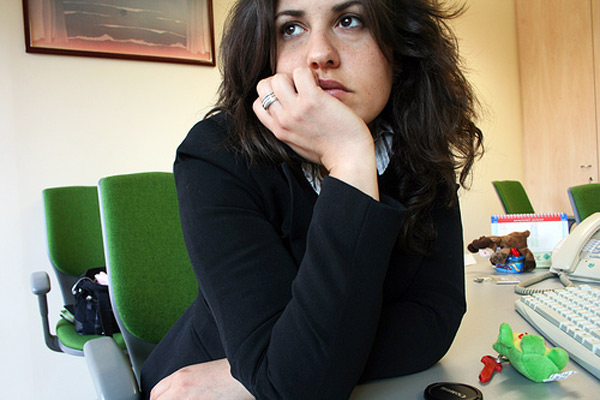
Family policy influences not only families’ economic behaviour, but also sends out clear normative signals on which people base their individual life plans: The longer a mother takes a break from work after the birth of a child, the more she loses interest in her own career: Professor Markus Gangl and Dr. Andrea Ziefle, sociologists at Goethe University in Frankfurt, are now able to prove this empirically. Their article entitled “The Making of a Good Woman: Extended Parental Leave Entitlements and Mothers’ Work Commitment in Germany” has just appeared in the American Journal of Sociology.
It was already becoming evident in international research that short periods of parental leave of up to one or one-and-a half years, such as are common in Scandinavia, lead to better integration of mothers in the employment market. This is clearly contrary to experience in Anglo-Saxon countries, where family is primarily a private issue. The longer parental leave is made possible by legislation, the more the disadvantages of this leave are of consequence. “Research to date considered the reason for this rather to be the behaviour of employers who tend to entrust mothers who have been absent for longer periods less frequently with demanding jobs or important tasks”, says Gangl and continues: “We call this ‘statistical discrimination’.” The two sociologists are, however, now able to show that this is not the only reason for the negative impact of longer parental leave. “The subjective attitude of mothers towards employment decreases considerably over the course of time. That means, through the longer break from work these women increasingly lose interest in working on their own professional perspectives”, says Ziefle.
In order to verify this statement, the two social researchers used the survey data – unique worldwide – of the Socio-Economic Panel. Incidentally, this empirical social research instrument, which was developed over 30 years ago at Goethe University in close cooperation with colleagues in Mannheim, has been used annually since 1984 – it is now in its 30th year – to interview representatively selected persons and households in Germany with regard to their income and living conditions. In their study, the researchers examined closely the answers which women had given regarding their subjective attitude to employment at various points in time: How did women’s attitude change after parental leave in Germany was extended in 1992 from 18 months to three years? Asked about their attitude to work after a longer period of parental leave, the mothers replied that gainful employment was no longer so important to them and that the family ranked first instead.
At that time, incidentally, almost 50 percent of the mothers had not worked prior to the child’s birth. Today it is only one third. “And in the 1990s it was possible to observe even amongst those housewives who were not gainfully employed that entering a profession became less and less an issue the longer the new law applied”, says Gangl and interprets this as an “effect of habituation to the new political environment”. Not only social awareness has slowly but constantly changed since the 1990s, but also the legal framework, such as greater involvement of fathers in parental leave as well as divorce legislation.
What relevance do the results of this retrospective study have for the situation today? “The study shows for the first time: Family policy not only has an influence on families’ economic behaviour. It is also the normative signals which are sent out and evidently subconsciously influence individual life plans”, explains Gangl. The researchers are not stopping at this retrospective analysis: “From another study, which we published last year, we know that mothers have gone back to work sooner as a result of the new family allowance”, says Andrea Ziefle. “We are working now on finding out whether the new family policy of recent years is also reflected in the subjective attitudes of fathers and mothers.”
The study done by Goethe-Universität Frankfurt am Main.